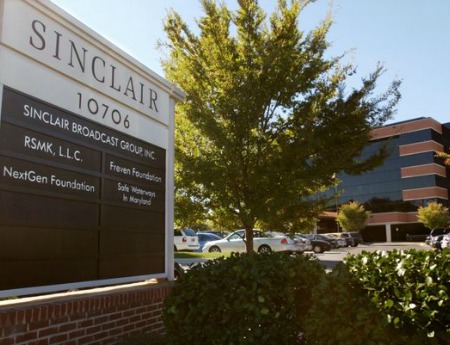Tribune Seeks $1B Deal Salve

The smarter way to stay on top of the multichannel video marketplace. Sign up below.
You are now subscribed
Your newsletter sign-up was successful
Tribune Media said in court filings Thursday that its merger path over the past 12 months with Sinclair Broadcast Group was bloodied not by regulatory pressure but by its partner's hubris, and is seeking $1 billion in damages to help heal its wounds.
Tribune officially terminated its $3.9 billion merger with Sinclair on Thursday. In a lawsuit filed in Delaware Chancery Court the same day, Tribune said Sinclair repeatedly failed to disclose key information from it and regulators, a practice which helped torpedo the deal.
According to the suit, the deal would have likely been approved months ago if Sinclair had only agreed to divest of stations in 10 overlap markets earmarked by the U.S. Department of Justice and presented clean station sales to the Federal Communications Commission to adhere to the federal broadcast ownership cap. Instead the company, according to Tribune, focused on deals that would greatly benefit Sinclair and only added to the deal’s regulatory onus.
Officials at Sinclair did not return requests for comment.
“Although staff members at DOJ and the FCC laid out a clear path for clearance of the Merger, Sinclair ignored their repeated statements of what was required for approval,” Tribune said in the filing. “Instead, Sinclair defiantly (and unsuccessfully) attempted to obtain clearance on better terms for itself, regardless of how long that took or whether it risked failing to obtain approval of the Merger.”
Sinclair made several proposals to divest stations and appease the agency, but it was a plan to sell two Texas stations – WDAK in Dallas and KIAH in Houston – and WGN in Chicago, that seemed to be the last straw for the government. FCC chairman Ajit Pai said those divestitures, to entities that had close ties to Sinclair, could represent possible sham transactions, and called for a hearing before an administrative law judge to look into the matter. In past merger reviews, such moves usually meant the deal was destined for the scrap heap.
Related: Pai: Sinclair-Tribune Decision Made Based on Facts, Law
The smarter way to stay on top of the multichannel video marketplace. Sign up below.
Tribune said Sinclair never informed it nor the government that the proposed buyer of the three stations – Cunningham Communications – was owned by a car dealer Steven Fader who’s biggest shareholder was Sinclair chairman David Smith. Nor did the broadcaster disclose that a controlling interest in Cunningham’s had been sold at a “suspiciously low price” to a Sinclair associate with re-purchase options held by Smith’s family members.
Those revelations came only out during public comments on the merger. Tribune said Sinclair never revealed it to its merger partner or the federal government.
Sinclair later pulled those sales -- opting to keep WGN and place the Texas stations in a trust for later sale -- but offered no other remedies, the suit claims.
According to the suit, the 10 markets DOJ considered to be overlap areas – including Seattle, St. Louis and Salt Lake City – were properties Sinclair had already considered selling as part of the merger deal.
“Yet Sinclair refused, deciding instead to antagonize DOJ officials, including by accusing the Assistant Attorney General of the Antitrust Division — the highest ranking official in that division — of ‘completely misunderstand[ing]’ the broadcast industry and being ‘more regulatory’ than any recent predecessor,” the suit said.
And that goading only increased in later meetings with DOJ officials, the suit said.
“Sinclair invited litigation over station divestitures, summarizing its position to DOJ in two words: ‘sue me.’”
Now the broadcaster will have to weather being the sue-ee instead of the sue-er.
